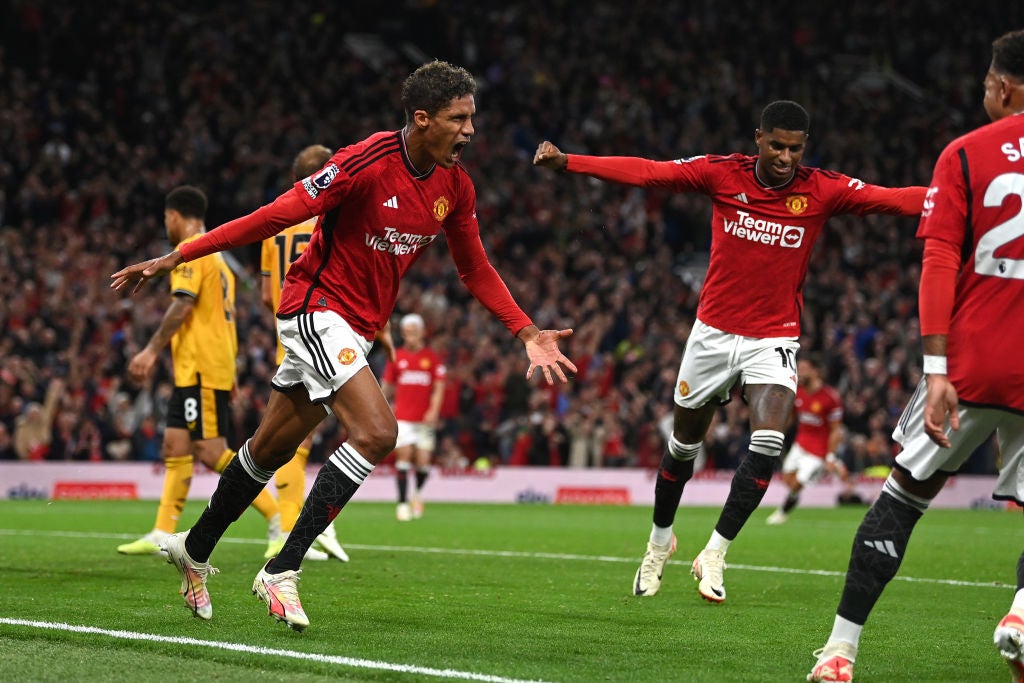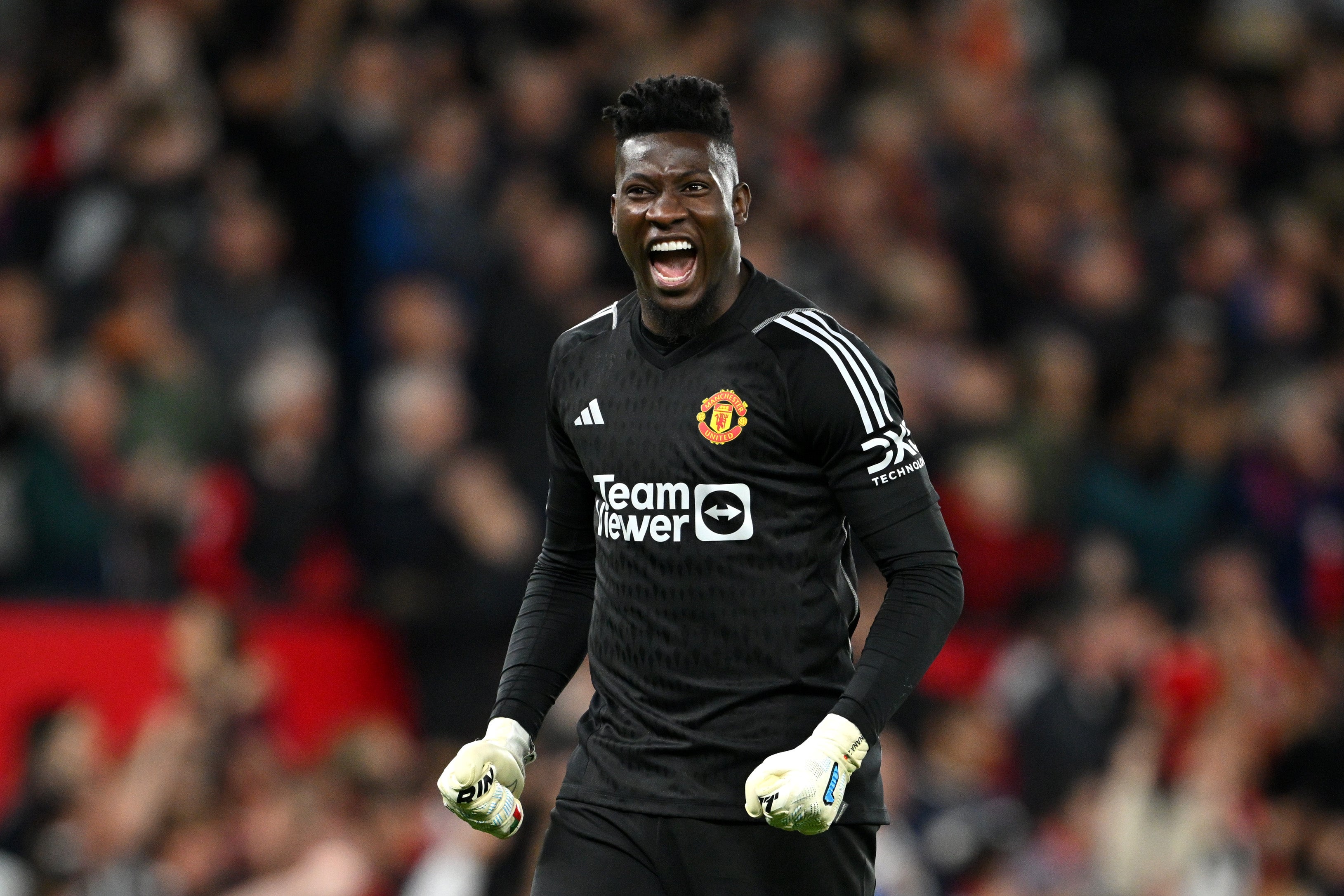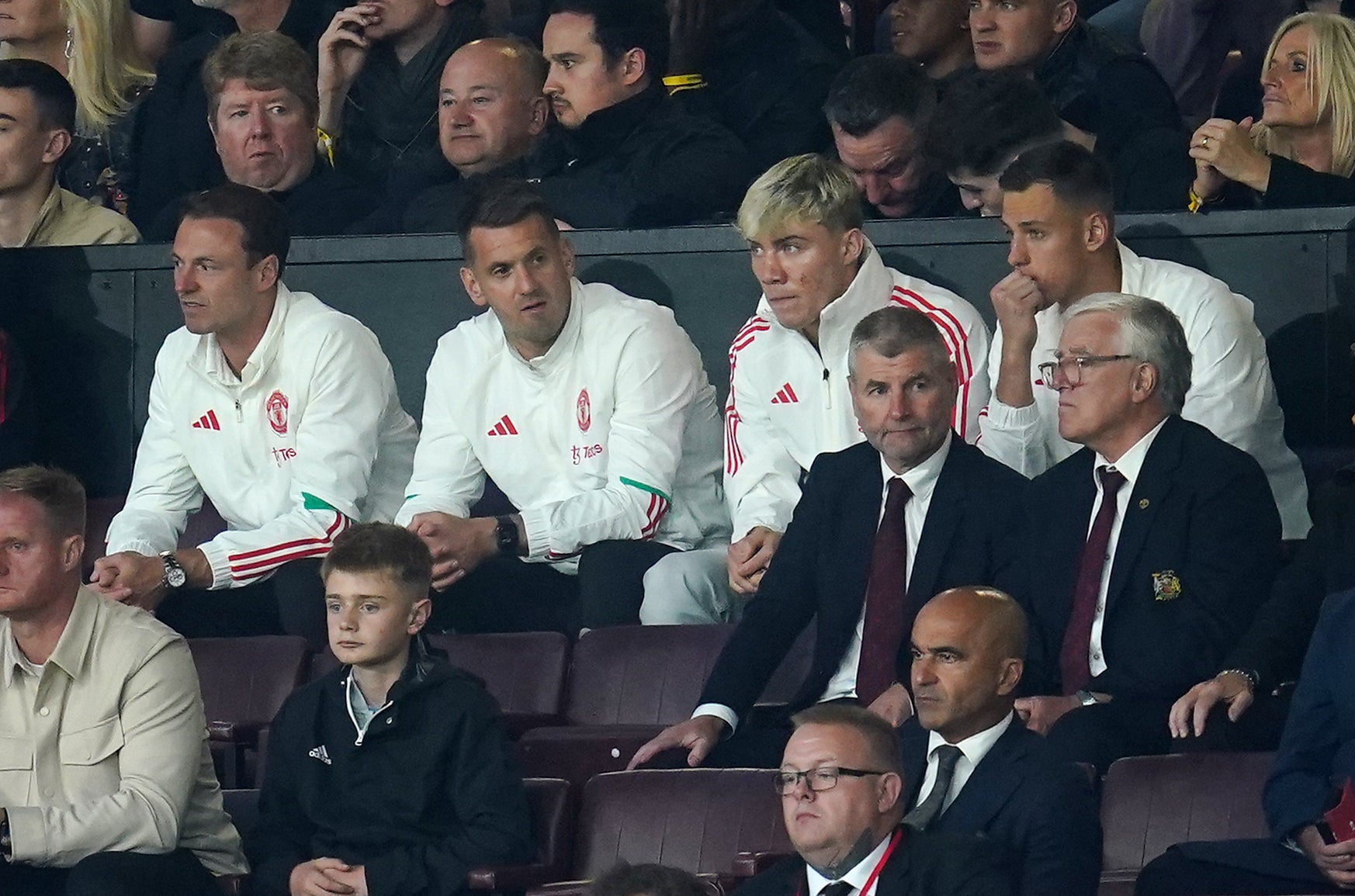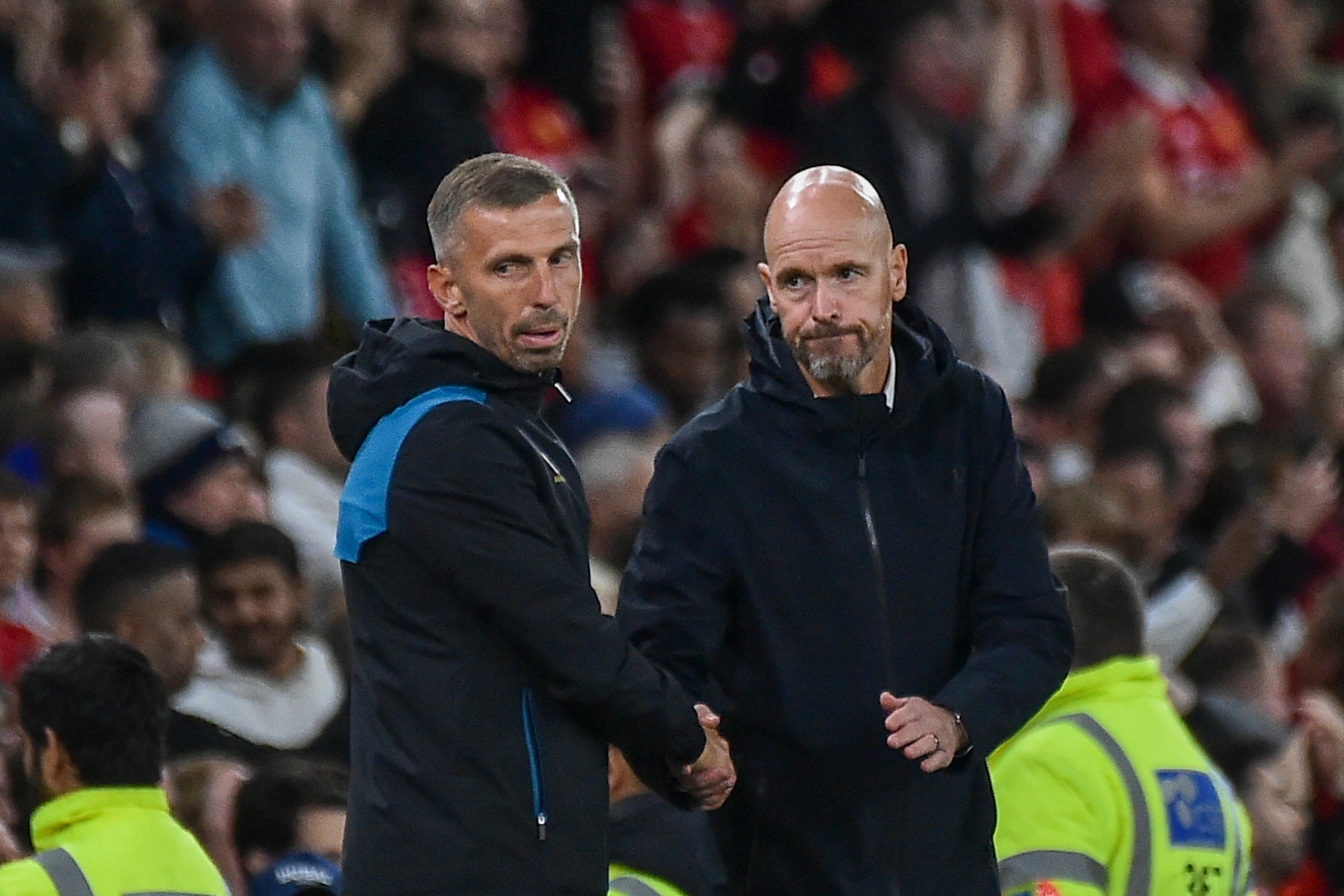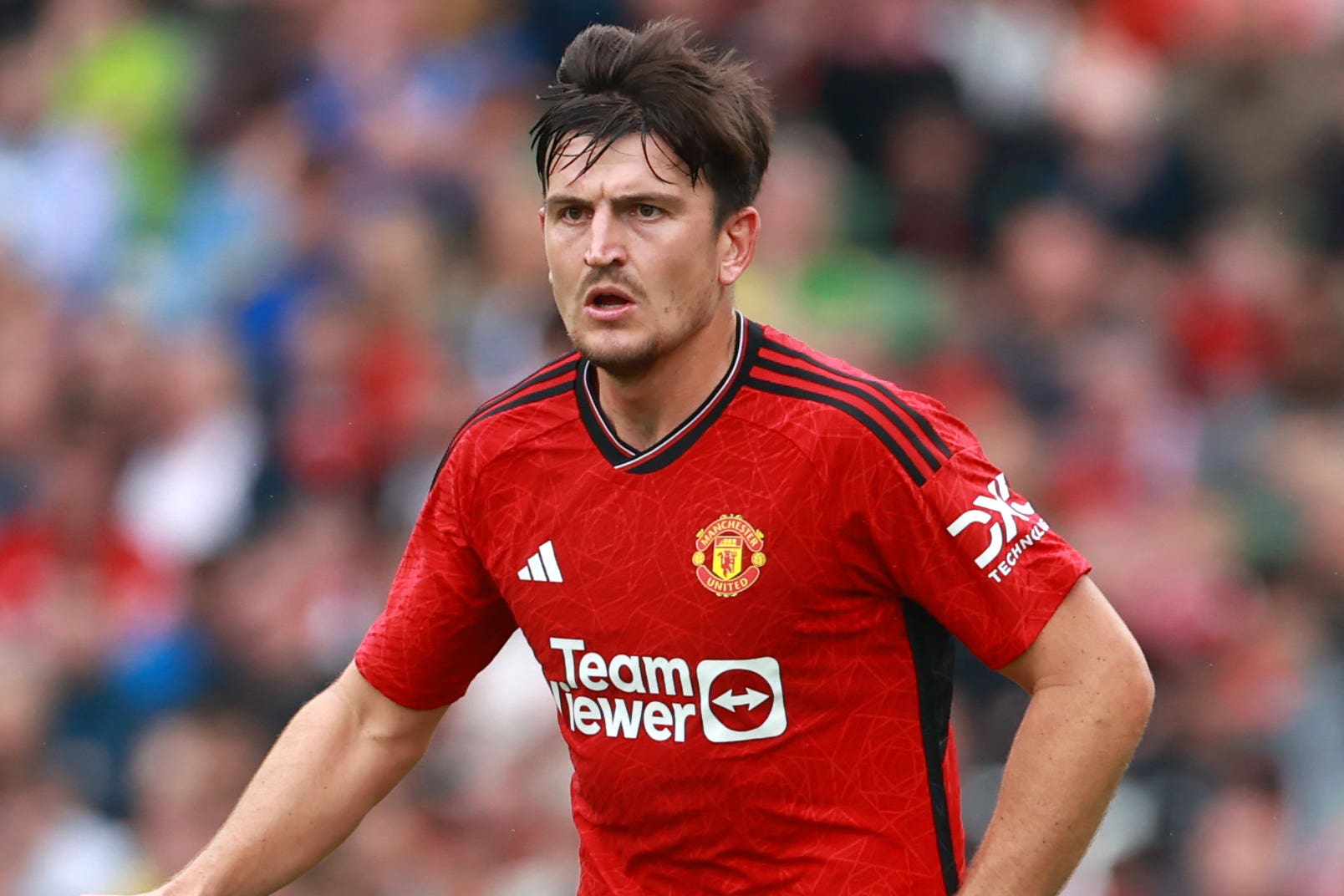Manchester United have a goal problem – and a new striker won’t solve it
Alejandro Garnacho was one of many frustrated Man Utd players against Wolves
Sign up to Miguel Delaney’s Reading the Game newsletter sent straight to your inbox for free
Sign up to Miguel’s Delaney’s free weekly newsletter
Thanks for signing up to the
Football email
There were sightings of Manchester United’s new £72m striker everywhere. Everywhere bar the pitch, anyway. Rasmus Hojlund was staring out from the cover of the programme. He was in the directors’ box, too, watching his new teammates illustrate that the burden of expectation on the 20-year-old newcomer could be huge.
United need goals. Hojlund’s tally of nine for Atalanta last season does not explain the fee in itself. United’s total of one on their opening night against Wolves was one more than they looked likely to score for most of the night. It came from Raphael Varane, not any of those with more of a responsibility for finding the net.
United have traded on an image as a byword for adventure and excitement that owes much to Sir Matt Busby and Sir Alex Ferguson’s finest teams and rather less to recent seasons. They scored 57 league goals in 2021-22, followed by 58 last year – as many as Brentford, 14 fewer than Brighton – and in a year where Marcus Rashford had what may remain a personal outlier of a campaign. If Hojlund will be charged with reducing the over-reliance on him, Erik ten Hag, who has the hallmarks of a United manager in several other respects, has to produce goalscoring numbers that are more Busby and Ferguson than Louis van Gaal or Ralf Rangnick. This was an unpromising start.
“The creativity was not so good because we gave the ball away too easily,” Ten Hag conceded; indeed they gave it away 81 times. “Now we have to be better on the ball. The front line was not in the best form today.”
Neither Alejandro Garnacho nor Antony offered enough threat and a tally of three shots on target – only five sides had fewer over the opening weekend and the two who were at home were promoted clubs – was an indication of that lack of incision. There was a lack of cohesion, too, which is a sign that bolting on a centre-forward is not necessarily enough in itself, even if it would allow Rashford to revert to the left flank, where he can be at his most potent. Class him as a winger and United’s specialist strikers got a mere seven league goals last season, none of them from Wout Weghorst: it is a reason why a striker topped the summer shopping list while Hojlund’s price tag only adds to the pressure on him.
Recommended
There have been times in recent years when United have seemed to think signings mattered more than strategy. If Hojlund should not be seen as a one-stop solution to a relative lack of goals, it is partly a question of personnel, partly of gameplan.
Rasmus Hojlund (second right, in white) watched from the stands as Manchester United edged past Wolves
Sometimes, though, they collide. Mason Mount’s arrival has brought a shift in the midfield: to 4-3-3, with two players who seem No. 10s by trade flanking Casemiro. If it was supposed to render United more attacking, Bruno Fernandes only showed flair when restored to the No. 10 role after Mount went off. Ten Hag’s gave a generous appraisal of Mount’s underwhelming debut. “It was a moderate game, he did well,” the Dutchman said.
The question of how they can dovetail may preoccupy Ten Hag this week. It is too soon to brand Mount and Fernandes too similar to feature in a central trio, let alone incompatible, but an image of the first hour was of Matheus Cunha powering through an empty midfield that gave United’s defence too little protection. It was a reason Wolves had 23 shots, the most of any visiting team at Old Trafford since 2005. If both the configuration of the midfield and Ten Hag’s summer business showed a need to get more goals, the danger is they come at the wrong end.
And United felt devoid of ideas themselves. There were points in Ole Gunnar Solskjaer’s reign when United’s strategy for scoring – apart from quick counter-attacking – was simply to give the ball to Fernandes and hope he could make something happen. And, for Varane’s goal, he did.
But their rivals have a more sophisticated blueprint. Last season, Ten Hag could be given a pass for United’s relative lack of goals: amid Anthony Martial’s frequent injuries, Cristiano Ronaldo’s implosion and Wout Weghorst’s impotence, there were mitigating factors.
Defender Varane was Man Utd’s only goalscorer on the night
Recommended
If United have to offer more entertainment to belong among their truest traditions, there is a pragmatic need to score more. Manchester City’s ability to get at least 90 league goals, and sometimes a century, is proven. Arsenal got 88 last year, Liverpool 75 in a campaign when Luis Diaz and Diogo Jota had major injuries. Newcastle have already got five this season. It is hard to compete with them if each will outscore United by 20, 30 or even 40 goals. If the newcomers Hojlund and Mount have part of the responsibility for closing the gap, so do the existing players who, Rashford apart, contributed too few last season.
Meanwhile, this season comes a quarter of a century after the most celebrated in United’s history. It finished with perhaps the most famous commentary about them. “Can Manchester United score?” asked Clive Tyldesley prophetically in the Champions League final. “They always score.” It was true then. Is it now?
Source: Read Full Article


